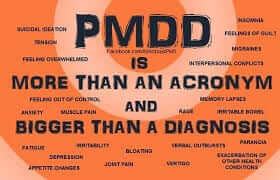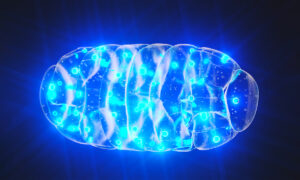What Is PMDD?

But premenstrual dysphoric disorder (PMDD) is different. It causes emotional and physical symptoms, like PMS, but women with PMDD find their symptoms debilitating, and they often interfere with their daily lives, including work, school, social life, and relationships.
Causes
Researchers don’t know the exact cause of PMDD. Most, however, think it may be an abnormal reaction to hormone changes related to your menstrual cycle.
Studies have shown a connection between PMDD and low levels of serotonin, a chemical in your brain that helps transmit nerve signals. Certain brain cells that use serotonin also control mood, attention, sleep, and pain. Hormonal changes may cause a decrease in serotonin, leading to PMDD symptoms.
Symptoms
The symptoms of PMDD usually show up the week before you start your period and last until a few days after it begins. Most of the time they are severe and debilitating, and they can keep you from daily activities.
Symptoms of PMDD include:
YOU MIGHT LIKE
- Mood swings
- Depression or feelings of hopelessness
- Intense anger and conflict with other people
- Tension, anxiety, and irritability
- Decreased interest in usual activities
- Difficulty concentrating
- Fatigue
- Change in appetite
- Feeling out of control
- Sleep problems
- Cramps and bloating
- Breast tenderness
- Headaches
- Joint or muscle pain
- Hot flashes
Diagnosis
If you have any of the classic symptoms of PMDD, you should see your doctor. She will review your medical history with you and give you a thorough exam, and will do some tests to find out how you are feeling emotionally and mentally.
Before she diagnoses you with PMDD, she will make certain that emotional problems, such as depression or panic disorder, are not what’s causing your symptoms. Other medical or gynecological conditions, such as endometriosis, fibroids, menopause, and hormone problems also have to be ruled out.
Your doctor can diagnose you with PMDD if:
- You have at least five of the symptoms listed above.
- They start 7 to 10 days before you get your period.
- They go away shortly after you start bleeding.
If, on the other hand, you’re dealing with these issues daily and they don’t improve when you start to menstruate, it’s unlikely they’re caused by PMDD







